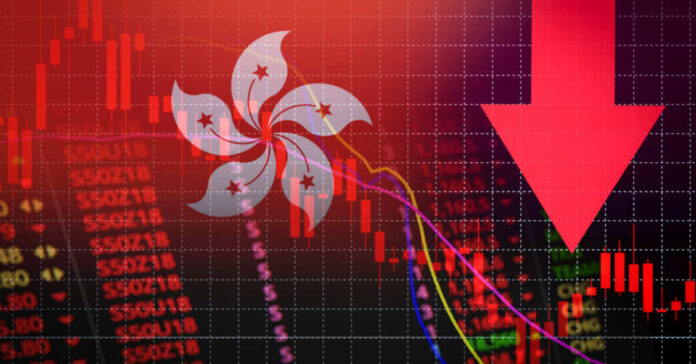
The global economy is a very delicate system. Changes in one nation’s stock exchange can send ripples across the marketplace as companies have investments, interests, and accounts across the globe. The days of publicly traded companies only doing business in their home nation are long over.
With a single ruling on January 29th, a Hong Kong court likely sent out a decades-long ripple effect through the global markets. Ordering the world’s most indebted group, China Evergrande Group, to liquidate their $300 billion in liabilities, the judge had decided enough was enough. Over two years have passed since the group initially claimed they were devising a plan to restructure their debts and work things out with creditors.
As the Chinese markets are already in trouble, experts caution this could trigger a sell-off, with investors taking their business elsewhere and interrupting global investments.
Ordered by Judge Linda Chan, she told the company that their ruse had gone far enough, and it was time for change. Appointing global consulting firm Alvarez & Marsal to oversee the process and ensure the value is protected for creditors will be an uphill battle as Evergrande chairman Hui Ka Yan is under investigation on multiple criminal charges. Holding $17 billion in US bonds, their debt saw the valuation of those bonds trading below a penny and valued at 16 cents.
For the Chinese economy, this is a massive warning come to life. With the Institute of International Finance already estimating that $65 billion in foreign cash will disappear from the Chinese economy in 2024, this doesn’t bode well for the country. As estimates claim $31 billion left the country in 2023, doubling their losses will essentially knock the legs out from under their volatile markets.
Across the board, China has been struggling economically, which has led to 40% of homes across the country defaulting on their home loans since 2021. In 2023 this translated to a 36.7% increase in defaults year-over-year, reaching a record of 796,000. A loss of people affording their homes sends valuations plummeting and often encourages rates to skyrocket.
Before the COVID pandemic started in China due to a leak from a Wuhan lab, the government had seen a 6% or better growth rate for years. Continuously taking away American manufacturing and high spec business, their economy soared as the American economy slowly lost ground.
Since emerging from their strict and destitute lockdowns, the economy was only able to get a 5.2% growth in 2023. While that .7% drop may not sound significant, a few years of 3% or less during COVID made a significant dent in the capital growth of the nation.
As holders of debt from the US, Canada, and other nations in the form of bonds, China’s government is incredibly dependent on the performance of other nations. As their nation is being destroyed from the inside out, it’s only a matter of time until they are forced to cash their chips in on other nations. Additionally, they can easily cripple other economies should their businesses decide to pull their foreign investments or cancel foreign purchase contracts.
For the US economy, this could spell certain disaster. Interruptions in the Chinese economy or the shorting of billions in debts could lead to companies like Nike, Apple, Ford, Microsoft, or even the farming industry suffering horrific losses if they have sustained issues. This would easily translate to shortages on shelves and higher prices here in the US. While we are not specifically under the umbrella of the Chinese economy and completely reliant on it, we sure have a sizable amount of business that goes into or out of the communist regime.















